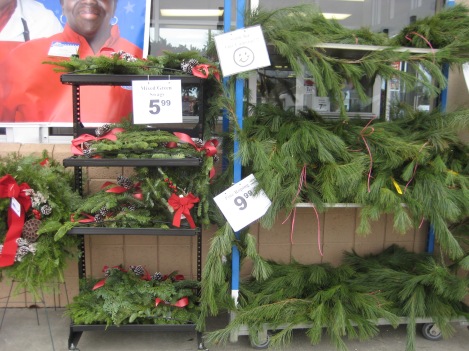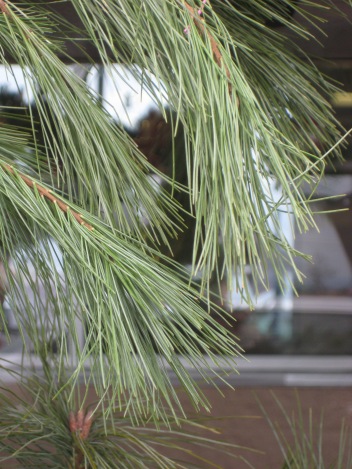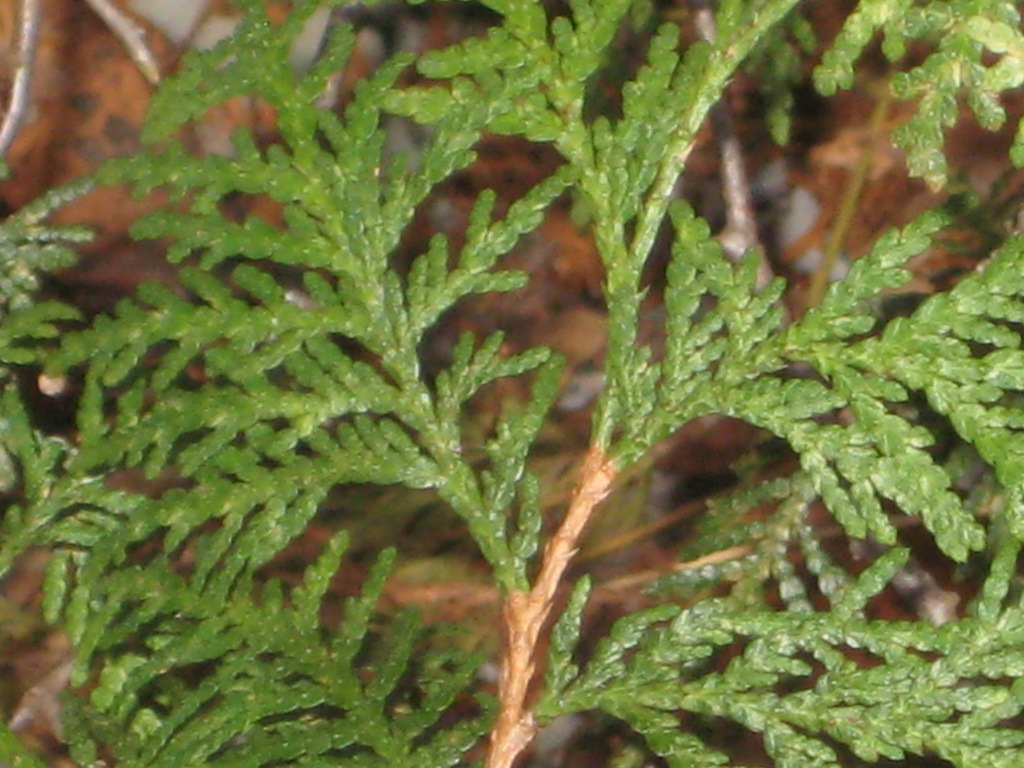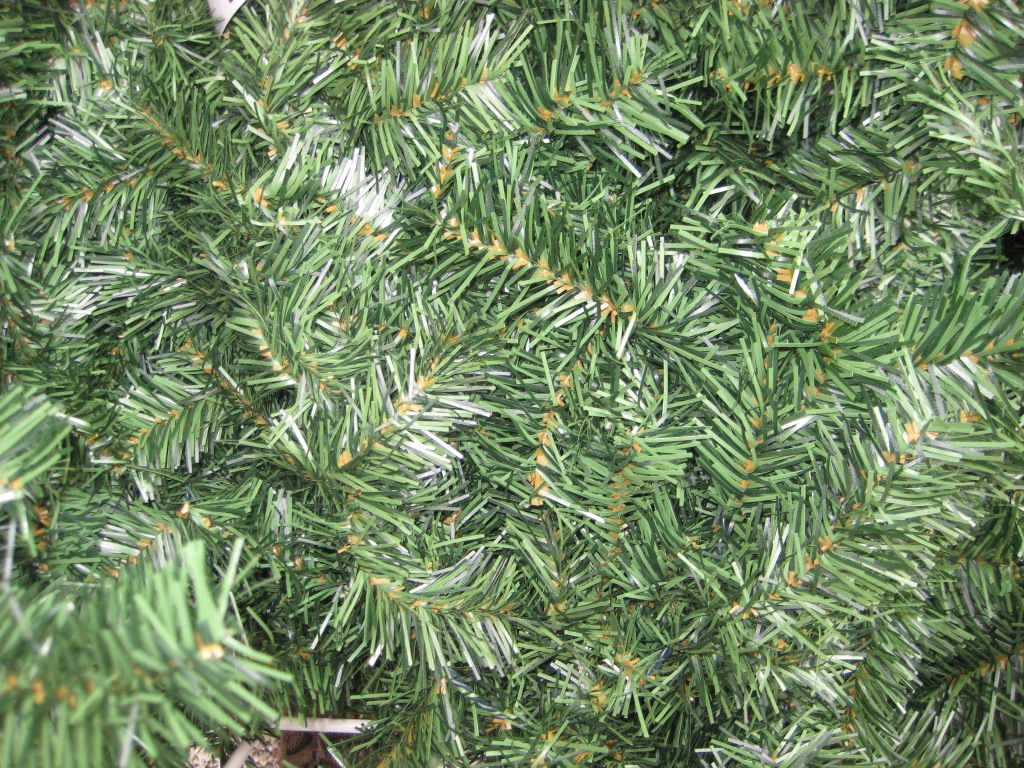One of the remarkable things about December, whether you celebrate Christmas or not, is that almost everywhere you go, there are evergreens draped all over things. The more urban the setting, the more greenery. Shopping malls suddenly resemble forests. I found plenty of foliage today at the grocery store.

And the botanist in me always glances at the evergreen decor with an eye to identification.
Now evergreen isn’t a type of plant, it’s a lifestyle. There are evergreen ferns, oaks, and mosses. It just means they keep some (but not all) of their leaves green all year long. (Needles are leaves, of course, they’re just shaped differently than those of the broad-leaved trees.)
Pines, spruces, firs, and cedars all get used to deck the halls and malls. Which evergreen is which? Here’s a field guide.
A simple rule of thumb: if the needles are longer than your thumb, it’s a pine. There are many species of pine, but some are a lot more prickly than others; the soft needles of white pine are common in those long ropes of greenery that loop around railings and stairways.

Pine needles come in clusters, so if long needles are attached to the twig in bunches, think pine.

If short needles are borne on the twigs singly, it’s probably a spruce or a fir.
If the needles stick out from left and right of the twig, think fir. (There are other possibilities, like hemlock and yew, but fir is more commonly used for wreaths and such, especially sweet-smelling balsam fir.)
If the needles grow all around the twig, it’s one of the many species of spruce.

If the plant has a sort of scaly look, a bit like the skin of a reptile,it’s a cedar.
Each of the little flat “scales” is actually a short leaf, and they overlap each other like tiles on a roof. This is white cedar (aka arborvitae) which has a wonderful fragrance.

Any guesses on this species of evergreen? (Hint: the leaves will remain green for several hundred years.)
Greenery in the grocery store, all month long. You gotta love it.





Ah, I know that last species: Abies plasticus! 🙂